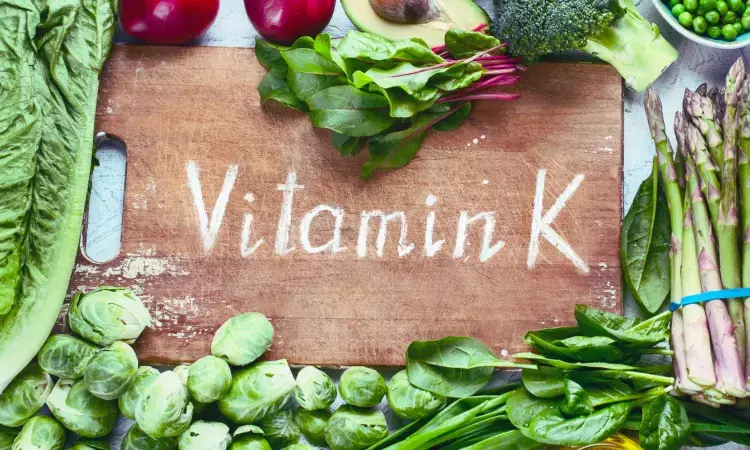- Home
- Medical news & Guidelines
- Anesthesiology
- Cardiology and CTVS
- Critical Care
- Dentistry
- Dermatology
- Diabetes and Endocrinology
- ENT
- Gastroenterology
- Medicine
- Nephrology
- Neurology
- Obstretics-Gynaecology
- Oncology
- Ophthalmology
- Orthopaedics
- Pediatrics-Neonatology
- Psychiatry
- Pulmonology
- Radiology
- Surgery
- Urology
- Laboratory Medicine
- Diet
- Nursing
- Paramedical
- Physiotherapy
- Health news
- Fact Check
- Bone Health Fact Check
- Brain Health Fact Check
- Cancer Related Fact Check
- Child Care Fact Check
- Dental and oral health fact check
- Diabetes and metabolic health fact check
- Diet and Nutrition Fact Check
- Eye and ENT Care Fact Check
- Fitness fact check
- Gut health fact check
- Heart health fact check
- Kidney health fact check
- Medical education fact check
- Men's health fact check
- Respiratory fact check
- Skin and hair care fact check
- Vaccine and Immunization fact check
- Women's health fact check
- AYUSH
- State News
- Andaman and Nicobar Islands
- Andhra Pradesh
- Arunachal Pradesh
- Assam
- Bihar
- Chandigarh
- Chattisgarh
- Dadra and Nagar Haveli
- Daman and Diu
- Delhi
- Goa
- Gujarat
- Haryana
- Himachal Pradesh
- Jammu & Kashmir
- Jharkhand
- Karnataka
- Kerala
- Ladakh
- Lakshadweep
- Madhya Pradesh
- Maharashtra
- Manipur
- Meghalaya
- Mizoram
- Nagaland
- Odisha
- Puducherry
- Punjab
- Rajasthan
- Sikkim
- Tamil Nadu
- Telangana
- Tripura
- Uttar Pradesh
- Uttrakhand
- West Bengal
- Medical Education
- Industry
Vitamin K supplementation may reduce risk of development of type 2 diabetes

China: A systematic review and meta-analysis published in the journal Food and Function has shed light on the relationship between vitamin K and type 2 diabetes mellitus (T2DM).
The researchers showed a significant effect of vitamin K supplementation on the regulation of fasting blood sugar (FBS) and Homeostasis Model Assessment of Insulin Resistance (HOMA-IR) in the population. Further, vitamin K was associated with a reduced risk of type 2 diabetes development.
"A meta-analysis of seven studies comprising 813 participants found vitamin K supplementation significantly reduced FBS (SMD = −0.150 mg dl−1) and HOMA-IR (SMD = −0.200), but not FINS," the researchers wrote.
Previous studies have demonstrated the potential role of vitamin K supplementation in the treatment and prevention of many diseases. However, there is a controversy around the effect of vitamin K supplementation on blood glucose. Therefore, Boyang Qu, Department of Neurology and Neuroscience Center, The First Hospital of Jilin University, Changchun, China, and colleagues aimed to evaluate the effects of vitamin K supplementation on glycemia-related indicators, including fasting blood sugar, fasting insulin (FINS), and Homeostasis Model Assessment of Insulin Resistance. They also evaluated the potential association between vitamin K and type 2 diabetes risk.
For this purpose, they searched the online databases up to April 2023 to evaluate the effects of vitamin K on blood glucose and the risk of developing type 2 diabetes.
The researchers reported the following findings:
- A meta-analysis of seven studies (813 participants) found vitamin K supplementation significantly reduced FBS (SMD = −0.150 mg dl−1) and HOMA-IR (SMD = −0.200), but not FINS.
- Five studies with a total of 105,798 participants were included in the meta-analysis of the association between vitamin K and T2DM.
- The results showed that vitamin K was associated with the reduced risk of developing T2DM (HR = 0.79)
"The meta-analysis showed that vitamin K supplementation had a significant effect on the regulation of HOMA-IR and fasting blood sugar in the population," the researchers wrote. "Moreover, vitamin K was associated with a reduced risk of developing type 2 diabetes."
"Considering some limitations found in this study, there is a need for additional data from large clinical trials," they concluded.
Reference:
Qu, Boyang, et al. "The Relationship Between Vitamin K and T2DM: a Systematic Review and Meta-analysis." Food & Function, 2023.
Dr Kamal Kant Kohli-MBBS, DTCD- a chest specialist with more than 30 years of practice and a flair for writing clinical articles, Dr Kamal Kant Kohli joined Medical Dialogues as a Chief Editor of Medical News. Besides writing articles, as an editor, he proofreads and verifies all the medical content published on Medical Dialogues including those coming from journals, studies,medical conferences,guidelines etc. Email: drkohli@medicaldialogues.in. Contact no. 011-43720751


